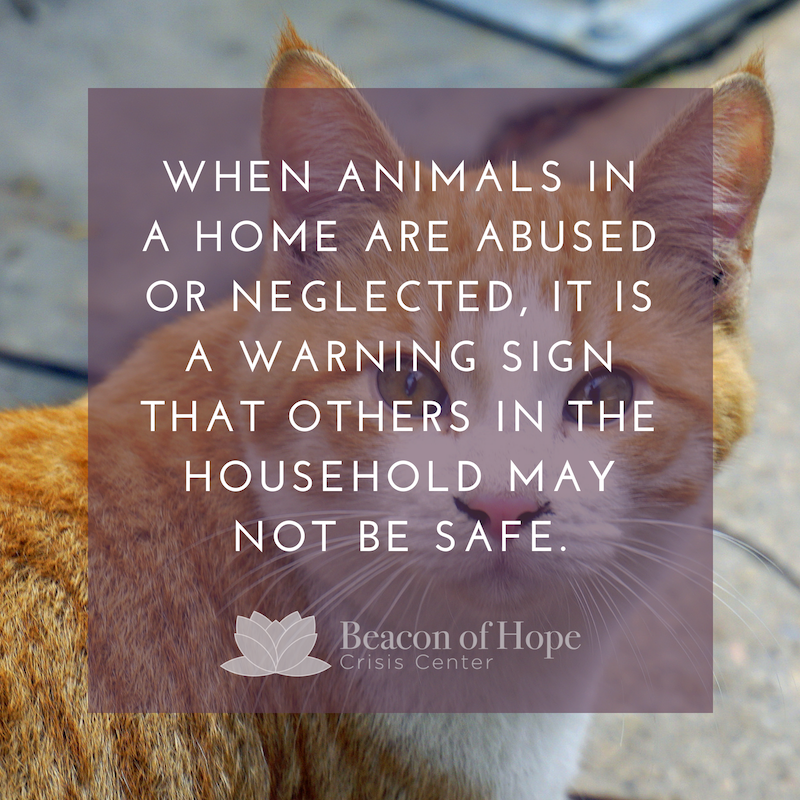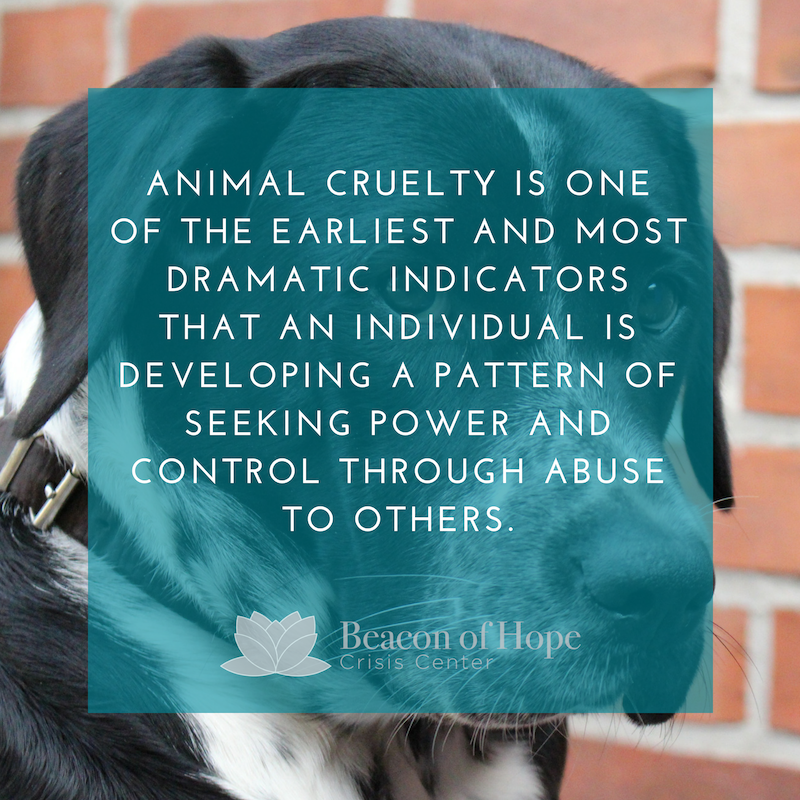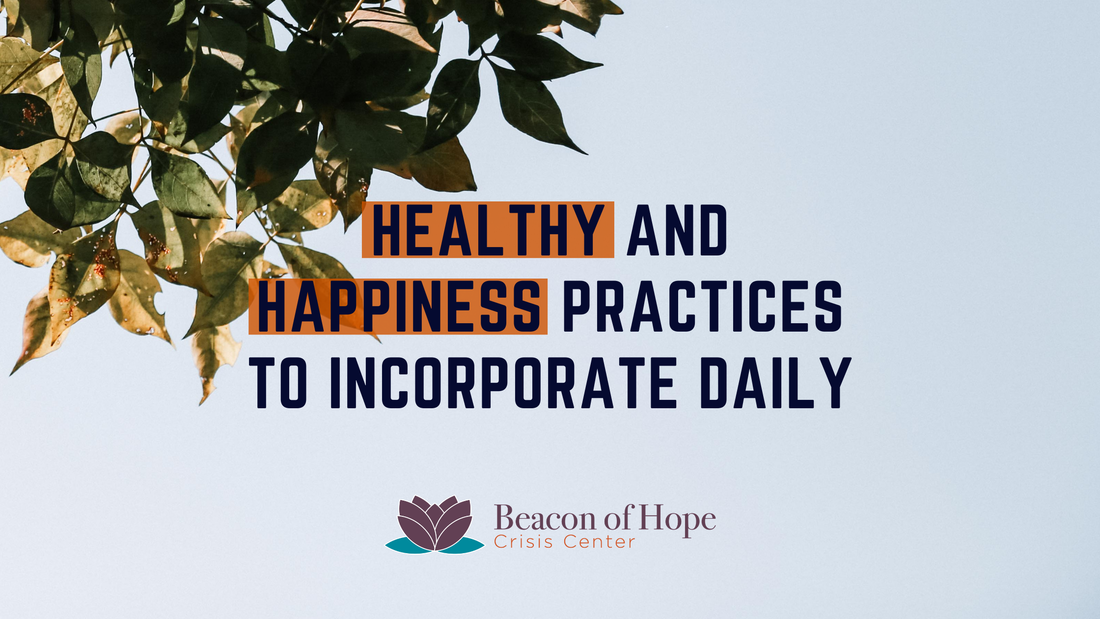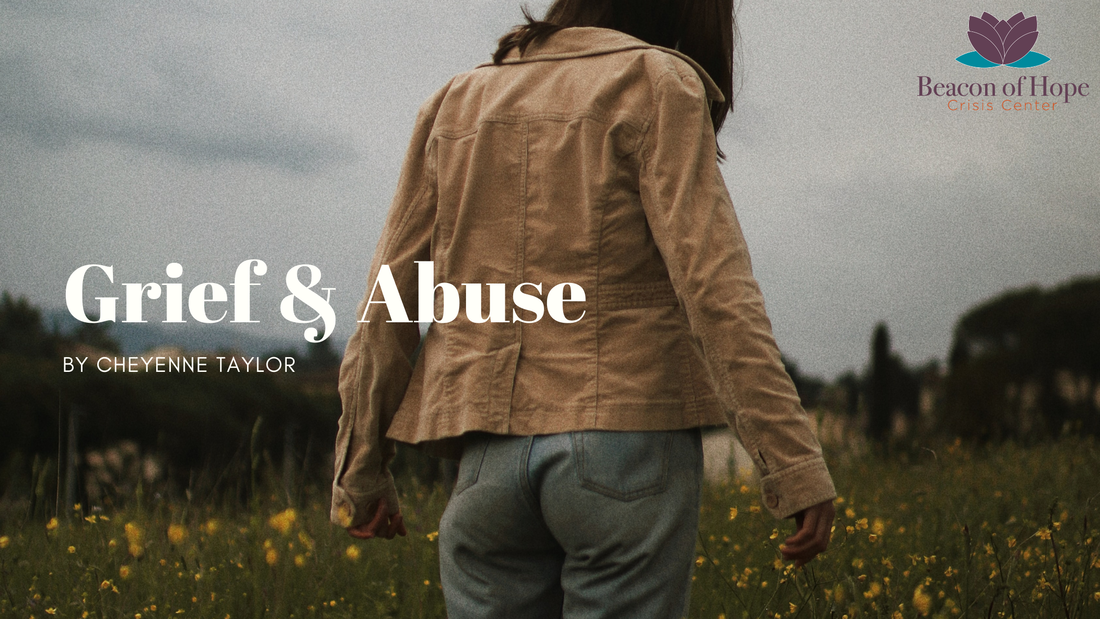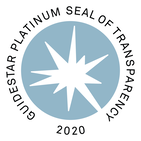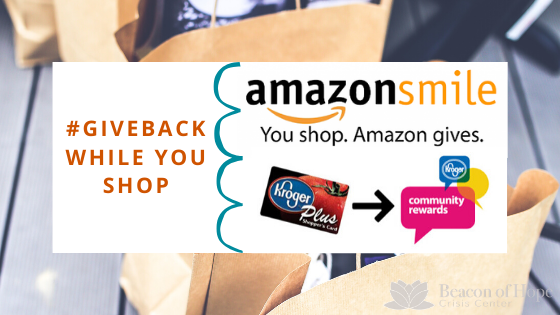|
By: Cheyenne Taylor Domestic violence can take away your strength, your independence, and your feelings of safety. Even after the abusive individual is out of your life, you might find yourself facing conflicting emotions that can harm your mental health. Survivors of trauma are three times more likely to become depressed and often face challenges with anxiety, panic attacks, triggers, etc.
The truth is leaving an abusive relationship does not automatically equate to happiness and health. There is as an adjustment period. Survivors have to learn how to navigate life without the abuse. They have to unlearn behaviors and become comfortable making all their own choices. They also have to come to terms with the fact that the relationship is over. Survivors often feel sadness or grief over the loss of the relationship and those are normal emotions to feel. Whether it be the companionship, the security of a romantic connection, or a simple bond built from trauma, ending an abusive relationship is not as cut and dry as many believe. Healing from past hurts can seem impossible, but many survivors have been there and come out on the other side happier and healthier. It is important that victims know they are not alone. Healing starts from within. Taking care of yourself, prioritizing your happiness and health, and learning to use your voice after being silenced by violence are all crucial steps in the healing process. We are here to help ALL survivors through the steps in any way possible. Leaving is the most challenging part. The rest is healing and becoming the healthier new you. There will be setbacks, and there will be triumphs. We are here to help you through your healing process or to start your healing process. Call our victim advocates at 317-731-6140 to discuss our services that can help you on your journey. These calls are confidential, and all our services are free. By: Cheyenne Taylor Domestic Violence Awareness Month is observed each October to unite advocates across the U.S. and acknowledge the efforts to end domestic violence. Across the country, advocates and survivors fight endlessly to raise awareness to the public about domestic violence. This month, we are doing our part to raise awareness while discussing the link between domestic violence and pet abuse.
Pet abuse is one of the four major indicators of domestic violence within a household. Abusers may kill, harm, or threaten victims' pets to force victims to comply with their wishes. In fact, 71% of female domestic violence survivors have reported that their abusers have done so1. Animal abuse often causes victims to stay longer in an abusive situation for fear of what will happen to their pets if they leave. 25-40% of abused women have reported staying with their abusers longer to ensure their pets’ safety1. No one should ever be put in a situation where they have to sacrifice their safety to ensure their pet remains unharmed. At Beacon of Hope Crisis Center, we recognize pets are silent victims that often go unserved. Pet abuse coincides with other types of human abuse, including domestic violence, elder abuse, and child abuse. In the case of child abuse, there is a lot of research that shows child victims abusing pets, either at the demand of the abuser or because of broader issues that could lead to the child becoming a batterer or violent adult. Because of the immense connection between pet abuse and other forms of abuse, first responders no longer view pet abuse as an isolated incident. It often alerts first responders to issues within a household. Many first responders rely on the following red flags for identifying pet abuse. If the pet has open wounds, scars, extreme thinness, an inability to walk or stand normally, or inadequate grooming, this might be a sign of mistreatment. If the pet displays behaviors such as hyper aggression, being timid, trembling when the abuser is near, or protectiveness of the victim or children, these are also all red flags that should alert people of possible pet abuse. It is also a red flag if a pet’s environment is inadequate, too small, or unclean. What can you do to help both victims and pets of victims from violence? You can stay informed about the link between domestic violence and pet abuse and donate to causes like ours to continue to raise awareness and fight against domestic violence and pet abuse. You can also become a foster parent for our Foster Pet Program and open your home to temporarily rehouse victims' pets until victims can find safe housing and reunite with their beloved animals. You can also share our message with your friends and loved ones to encourage them to become foster parents with our organization and help both the pets and their humans find safety and happiness. Click to learn more about our Foster Pet Program. By: Cheyenne Taylor Toxic positivity is often portrayed as positive thinking, but it is often dismissive of negative emotions. All emotions are natural and should be felt. If you spend all your time denying your negative emotions, you never give yourself time to work through issues. Below are some examples of toxic positivity to help you identify some unhealthy phrases you may have heard or used:
“Don’t focus on the bad; just focus on the good!” The issue with just focusing on the good and ignoring the bad in any instance is that you do not learn or grow by focusing on your accomplishments. Concentrating on and appreciating your successes is excellent for building your confidence. Still, you grow as a person when you address your failures and figure out what went wrong and what to do in the future. Also, keep in mind that disappointment is something we all feel; it is okay to focus on the bad and allow yourself to process those feelings. “It could be worse,” or “Look on the bright side.” Often, people use this to make others feel better, but it can invalidate a person’s emotions and make them feel like they do not have the right to be upset about their experiences. While you could argue most situations could be made worse, it does not change the fact that a situation is terrible. Also, while looking at the silver lining might be okay in some cases, it is not always possible. In terms of sexual assault, many victims have been told well they’re lucky because they survived; however, they still experienced sexual assault, which is horrible, and stating that they are fortunate undermines the pain they’ve experienced. Overall, if someone is telling you about a bad experience they had, it is so much better to acknowledge the difficulty they’ve faced than to tell them it could have been worse. Lastly, “Don’t give up,” or “Failure is not an option.” These both preserve the idea that failure is bad and giving up is wrong, when the truth is both are just options that have a bad rep. Giving up is not a bad thing, and there are times where you need to. One, failure is just a part of life; there’s no point in making people feel bad about something we have all experienced and will probably experience again. Second, pushing yourself to succeed and ignoring signs of a situation or opportunity not being a good fit for you is not helpful. In a lot of cases, people have revealed they felt a weight off their shoulders when they left a stressful situation/relationship/opportunity. This is not to encourage you to give up when you have a stressful day at a job or in a healthy relationship, but rather to denote the idea that by giving up, you have failed, when sometimes by toughing out a situation you have failed to acknowledge your unhappiness. There are many more examples of toxic positivity to look out for, but it is most important to make sure you are allowing yourself the time to process and feel your emotions. You cannot heal and move on if you ignore the darker parts of life. Learning from these experiences and growing is a process, but the process doesn’t start until you accept your feelings. If you or someone you know has experienced sexual assault or domestic violence, please call our confidential crisis line at 317-731-6140 to speak with a victim advocate. If you are in immediate danger please call 9-1-1. By: Cheyenne Taylor A large part of maintaining your happiness and health is incorporating healthy practices into your daily routine. The following practices are intended to improve your overall wellness and provide restoration and balance to you throughout the day. By incorporating these practices into your day-to-day, you can help combat the more negative aspects that you may face.
1. Creating a Morning/Nighttime Routine Starting and ending your day on the right foot, can improve your day overall, as well as your mood and energy levels. By creating a morning schedule, including things like wearing sunscreen, avoiding technology, and meditative activities, you can start your day on a positive note, improve your mental health and lower your stress levels. One key recommendation is to wake up earlier than necessary, so you are not rushing in the morning, which can set a stressful mood for the day. By having a nighttime routine with less technology or screen use, and other healthy practices, including sleeping earlier and journaling, you can ensure that you get a great night's sleep, which directly impacts many areas of your life. If you find yourself struggling to go to sleep, by creating a night schedule, you can naturally train your body to recognize your routine as a cooling period before rest. The essential part of either routine is to personalize it to your likes and needs. You know what works for yourself but we recommend trying something new and making changes as needed. 2. Planning Your Meals Planning out your meals might seem like a hassle, but it is a beneficial practice and can improve many areas of your life. It also can be fun! By planning out your meals, you can control your portions, cut costs by avoiding unnecessary food purchases, and ensure that you are maintaining a well-balanced diet. The added benefits of planning your meals include creating new meals and guaranteeing you eat. It is so common for people to become so focused on their tasks that they forget to eat, but with meal planning, you form a realistic eating schedule that accommodates your dietary needs. Also, meal planning means you can experiment with different vegetables, proteins, and desserts to open up your palate. Finding a delicious, balanced recipe is a fantastic mood booster and a fun activity! 3. Make time for Goals Mark Twain said it best, “If it’s your job to eat a frog, it’s best to do it first thing in the morning. And if it’s your job to eat two frogs, it’s best to eat the biggest one first.” Essentially, what he suggests is tackling the most challenging task first, get it out of the way. We think that this is an excellent piece of advice in most instances. When you knock out the hardest task, you gain more confidence in your ability to handle whatever other duties you have to handle. By chipping away at the daunting task, it is not hard to overcome after a while. In addition, sometimes, the most daunting task is starting. Setting aside time in the week to work on your goals will make them easier to accomplish in the long run. Productivity boosts your morale and brings you closer to living a fulfilling life and achieving your dreams. 4. Journaling We have recommended journaling in the past and will continue to because it is an easy practice to incorporate into your life with numerous benefits. With journaling, you can safely express yourself without judgment or repercussions. It is a great way to gather your thoughts if you do not feel like you can confide in someone about something. It has a low time commitment and can be added to a morning or nighttime routine. Journaling lowers stress, improves mood, and helps you identify your fears, triggers, and issues. 5. Walking/Getting Outside Walking is an easy way to get some exercise. Walking wakes the body up and allows you to get some much-needed energy throughout the day. Also, when you walk, you are improving your overall wellness and all areas of health. Lastly, you can connect with the world around you and see the beauty in your surroundings. Walking is such a great way to start the day and reenergize. Getting outside in any way is also helpful. Even getting a breath of fresh air can help with stress levels. A grief researcher named Kenneth Doka recognized the idea of disenfranchised grief in the late 1980s to describe grief people experience that is not “openly acknowledged, socially validated, or publicly supported,”[1]. Survivors of domestic violence and sexual assault often experience disenfranchised grief after their experiences.
After leaving an abusive relationship, feelings of loss can arise rather quickly. People that have experienced abuse can feel grief over the loss of the person they were before their abuse, the loss of a pet or loved one, loss of connections due to the isolation within the relationship, or even the loss of the relationship itself. These feelings are complicated and hard to express. A lot of times, survivors fear being judged for their feelings. Many assume that the primary emotions that one feels after leaving an abusive relationship are joy and relief; however, the truth is that there are negative emotions to process as well. For sexual assault victims, these feelings of grief are very similar. Sexual assault victims can feel a sense of loss, anger, or resentment for the changes their mind and body goes through. After a sexual assault, many victims experience symptoms like PTSD, anxiety, and depression. These symptoms can also cause survivors of sexual assault to feel a sense of loss. They grieve not feeling safe anymore, not feeling themselves, or not being able to move on quickly from their experience. While there are many other ways victims of domestic violence and sexual assault experience disenfranchised grief, we want all survivors to know that their grief is valid, as are their feelings. Healing is a process, and it is often not a straight path. We are here for all survivors; we believe all survivors and are here to support and uplift them. If you or a loved one is experiencing domestic violence or sexual assault or have had experiences with either, know that Beacon of Hope Crisis Center offers free services and resources. To speak with our trained victim advocates, call our confidential crisis line at 317-731-6140. [1] https://www.socialworktoday.com/news/enews_0618_1.shtml Beacon of Hope Crisis Center’s law enforcement partnerships have dramatically increased our ability to reach and serve the most vulnerable and needy in our communities at the time we are needed most. We work extremely hard to acquire the knowledge and training necessary to support and educate our police partners. By working collaboratively with law enforcement, we can achieve our purpose of ending the cycle of domestic violence gripping our communities. Domestic violence has become more not less pervasive in the last few years. It impacts 1 in 4 households. There are no boundaries it has not breached, be it racial, socioeconomic, educational, or geographic. Every community is affected. We have learned much from research and experience. Police departments need more (and more in-depth) training as early intervention not only cuts down on domestic violence incidences, but also curbs escalations that result in homicides like the one involving Officer Breann Leath earlier this year. Necessary training to achieve these goals must increase. Police departments need solutions that would allow officers to attend training without being also on duty to answer calls. Beacon of Hope Crisis Center is an Indiana Law Enforcement Academy Approved Training Provider. We provide, free of charge, training to police departments on domestic violence and sexual assault crimes. We will bend over backwards to accommodate schedules and offer multiple options (in-person and online) for training. We partner with Police Department’s to provide advocacy services to domestic violence and sexual assault victims of crimes. We provide tools and resources to the officers and help by taking care of the victims while officers are dealing with the perpetrators. We have police partners that really get it. They grant write with us and have a dedicated Domestic Violence Detective, recognizing that domestic violence cases are different from typical battery cases and should be worked differently. Those police partners communicate, co-promote and work with us on a much bigger level treating us as true partners in service to the community. Most of our police partners are service oriented and make it a personal mission to positively impact every single person in their community. Those police partners are helmed by Chiefs who set the tone for addressing domestic violence and sexual assault and take swift action when any officer violates their clearly outlined views on service. Unfortunately, we also have police partners that are only half-way there and some that do the bare minimum. From those departments we consistently hear that the decision makers just don't have time for deeper discussions, self-analysis or outside assistance. We want and do help those communities as much as we are permitted. Two obstacles impede those departments’ effectiveness in serving domestic violence victims. First, leadership often does not view domestic violence as a serious issue and their attitude permeates the department. Second, they do not allow outside training by experts but instead rely upon internal training. Internal knowledge has its limits, however, and perpetuates isolation and a tendency to be stuck in the mindset of “this is the way we have always done it.” It multiplies implicit bias against victims. External training by experts in the field can breathe new life into a department and its ability to serve its community. If a domestic dispute escalates to the level of a 911 call, it warrants a follow up by a domestic violence advocate. We advocate for all intimate partner and family violence victims. Sadly, we have run up against attitudes in some police departments that “we don't get involved in marital spats...” Essentially giving permission to perpetrators to beat their partners. Similarly, and equally as harmful, is the exasperation felt by many officers who do not have training and education on the reason’s victims might not immediately leave an abuser. Frustrations lead to statements like “if we have to come back here, everyone is going to jail.” Of course, that does not deter the abuser. When they go back, and they do, what do you think happens to the children and the pets in those homes? What do you think happens to the futures of those arrested? Did you know that female victims in this exact situation are repeatedly incarcerated even longer than the male abuser? We only hear from these uncooperative police departments when the evidence of domestic violence is undeniable, and the victim is severely battered or injured by weapon and in the ER. No longer are we able to educate and protect the victim, showing escape routes, support and understanding. No longer can the abuser get help needed to stop the abuse. Early intervention by trained officers and advocates can benefit both the abused and the abuser, and subsequently their household and community. The sooner we are involved, the more likely the perpetrator can seek intervention/counseling services before landing a life-sentence in prison for causing physical life-altering harm or murder. If you are a police department that has in the past held the view that domestic violence was merely “marital spats” or whining by people who won’t stand up for themselves, we hope your eyes have been opened recently. We ask that you observe, take notes from, and talk to our police partners that are doing things right. The point of partnership is early intervention. Research, statistics, and experience confirms that early intervention saves lives. We ask all Police Department’s to step up and be true partners. Contact our CEO today to partner with us or to learn more about partnering with an agency in your state or region to better serve your community. Beacon of Hope Crisis Center recognizes the hurt, frustration and anger that has gripped our nation after the tragic death of George Floyd and countless others that came before him. We are shaken by grief and frustration. Black Americans are too often denied fundamental human and civil rights and the dignity and respect that comes with them. The regrettable history of suffering and injustice in our Black community is important to us and should be important to us all as human beings. Beacon of Hope pledges to do more.
Beacon of Hope Crisis Center also recognizes that the pandemic has brought a wave of bias against many in the Asian Community. We also know that communities of color are being disproportionately impacted by COVID-19. We cannot stand by while those in our communities are suffering. We are committed to fighting against racism and discrimination wherever and however it exists. Our staff and leadership pray for wisdom in addressing injustice. We are committed to working with our law enforcement partners who stand up for the rights of victims daily. We are extremely proud of our partnerships with law enforcement and know that many lives are saved because of their deep commitment to seeing victims get to safety. We will use our training and resources to assist our partners in recognizing and addressing system bias, whether implicit or explicit, so that ALL victims can receive necessary, timely and life-saving services. We are committed to reaching out to and actively working with civil rights, social justice, and inclusion groups in our communities. We will work with such groups to ensure that we as an organization are not blinded to our own limitations and are doing all that we can to reach those suffering from domestic violence and sexual assault. We are committed to fostering diversity and inclusion within our organization. It is through the diversity of insights and perspectives that we as an organization will reach our highest potential. We REAFFIRM our commitment to a world in which everyone can live free from the grip of domestic violence and sexual assault. At the forefront of our minds is the added risk those we serve on a daily basis suffer because of upheaval, both with the civil unrest and COVID-19 ramifications. We know that any external factors that add stress and financial strain can negatively impact survivors and create circumstances where their safety is further compromised. If you or someone you know needs help, we are here for you. BeaconOfHopeIndy.Org PRESS RELEASE “Beacon of Hope Crisis Center Earns GuideStar’s Highest Seal of Transparency” Platinum Seal allows donors to focus on progress and results (INDIANAPOLIS, IN – June 9, 2020) – Beacon of Hope Crisis Center has earned the 2020 Platinum Seal of Transparency, the highest level of recognition offered by GuideStar, a service of Candid. By sharing metrics that highlight progress Beacon of Hope Crisis Center is making toward its mission, the organization enables donors to move beyond simplistic ways of nonprofit evaluation such as overhead ratios.
"We have long-held a passion and commitment to transparency in our work,” said Jacqueline Bowman, Board Spokesperson, “we are excited to convey our organization’s results in a user-friendly and highly visual manner. By updating our GuideStar Nonprofit Profile to the Platinum level, we can now easily share a wealth of up-to-date organizational metrics with our supporters as well as GuideStar's immense online audience, which includes donors, grant makers, our peers, and the media." Beacon of Hope Crisis Center provides victim assistance and serves as a critical essential business during this national health crisis. Our advocates, counselors and administrators have worked tirelessly to serve increased demand while grappling with the unprecedented challenge of providing quick access to safety, when the public health crisis requires distance and separation. Every day, Beacon of Hope Crisis Center works to provide safety, education, and support to all victims of domestic violence and sexual assault while making sure rights and equality are top priority and ensuring equal access and opportunity to resources and services. Our staff and governing board, comprised of racially and ethnically diverse men and women, stand firm in our resolve to provide victims the tools they need to break free of violence. “Reflected in our GuideStar Platinum Nonprofit Profile is the immense pride we share in knowing,” said Sandra Ziebold, CEO, “that we are an agency that serves ALL individuals facing domestic violence and sexual assault crisis regardless of religion, race, color, sex, age, sexual orientation, gender identity or gender expression, marital status, national origin, language capacity, or ability.” Beacon of Hope Crisis Center recognizes that increased financial, health, civil justice and reform pressures have heightened the need for victim services. “Our passionate and diverse board and staff have been and will remain committed to life saving real change,” explained Ziebold. “We not only face this global health crisis, but also continue to address the need that emanates from the effects of centuries of systemic oppression and racism across our country. There is deep pain, outrage, and sadness in our souls. We must stand together, unite, and overcome as a nation that envelopes one another in equality and love.” To reach the Platinum level, Beacon of Hope Crisis Center, added extensive information to its Nonprofit Profile on GuideStar: basic contact and organizational information; in-depth financial information; qualitative information about goals, strategies, and capabilities; and quantitative information about results and progress toward its mission. By providing this information, Beacon of Hope Crisis Center, puts into action its stated commitment to transparency and to giving donors and funders meaningful data to evaluate nonprofit performance. We chose to display quantitative metrics such as positive outcomes in the lives of survivors to exemplify the substantial impact Beacon of Hope Crisis Center makes in working toward achieving our mission. It is important for our organization to share these outcomes with the community to show that together with quality service delivery and the help of donors we are eliciting positive change in people’s lives. "I encourage you to visit Beacon of Hope Crisis Center’s profile on GuideStar to learn more about us," added Bowman. “We are thrilled that our GuideStar Platinum Nonprofit Profile and its associated benefits help us better communicate our organization’s exciting initiatives at a global scale." ### About GuideStar Nonprofit Profiles In February 2019, GuideStar joined forces with Foundation Center to form Candid, a new 501(c)(3) nonprofit organization. Today, GuideStar is a service of Candid. The GuideStar database contains a profile for every tax-exempt nonprofit registered with the IRS. The profiles are populated with information directly from nonprofits, the IRS, and other partners in the nonprofit sector. Candid encourages every nonprofit to claim and update its profile at no cost to the organization. Updating allows nonprofits to share a wealth of up-to-date information with the more than 13 million people who visit guidestar.org to learn more about nonprofit organizations each year. Updating also allows nonprofits to share information with the more than 200 philanthropic websites and applications that are powered by GuideStar data, such as AmazonSmile, Facebook, and Network for Good. To reach a given participation level, organizations must complete all required fields for that level. The GuideStar participation levels, acknowledged as symbols of transparency in the nonprofit sector, are displayed on all updated participants' profiles in the GuideStar database. About Candid Every year, millions of nonprofits spend trillions of dollars around the world. Candid finds out where that money comes from, where it goes, and why it matters. Through research, collaboration, and training, Candid connects people who want to change the world to the resources they need to do it. Candid’s data tools on nonprofits, foundations, and grants are the most comprehensive in the world. Learn more at candid.org and on Twitter @CandidDotOrg. About Beacon of Hope Crisis Center Beacon of Hope Crisis Center a Christ-centered organization empowering victims of domestic violence and sexual assault to become self-sufficient by providing safety, support, and education. Serving Central Indiana since 2009. Beacon of Hope Crisis Center is a confidential and safe place where individuals who are or have been a victim of domestic violence and/or sexual assault can receive advocacy services and referrals. Our advocates assist with safety planning and let victims know what is available for them within our agency or one of our agency partner service providers. We assist in many ways, a few of those ways are helping with protective order filings, victim compensation and other paperwork, court accompaniment, helping to find a bed in a domestic violence shelter when that is needed, fostering pets while victim(s) are in shelter, helping with the healing process, counseling, steps toward independence and self-sufficiency for long-term improved quality of life. Beacon of Hope is a non-profit 501(c)(3) organization located in Indianapolis, Indiana. More information can be found at https://beaconofhopeindy.org. We recently received an emergency grant from The Allstate Foundation to help us continue to serve survivors of domestic violence during the pandemic. These funds have helped us to continue to provide our essential services to those dealing with often unfathomable trauma. Our grant was awarded as part of $500,000 in emergency grants provided by The Allstate Foundation to help more than 100 domestic violence organizations to provide necessary relief as the need for domestic violence services continues to rise.
Survivors may be isolated with abusers and cut off from social support systems. Check in with your friends and loved ones often through calls, email, or video chats. It is important to be there for one another and listen for warning signs of abuse. If you or someone you know is experiencing domestic violence or sexual assault, please consider calling to speak with an advocate. Victim advocates can offer information and guidance on next steps, call today (317) 731-6140. If you are in an emergency, please call 911. Red Flags of an Abuser:
Giving back to your community is always an amazing idea, but getting started can sometimes be tricky. We suggest supporting survivors. Beacon of Hope Crisis Center is a local nonprofit organization that serves ALL individuals facing domestic violence or sexual assault. Donations will directly benefit victims in central Indiana by providing services and resources such as safety, education, financial assistance, and counseling at no cost to our clients. Below are two ways you can become a donor and ally to survivors. We hope you consider joining us in the fight to end domestic violence and sexual assault.
AmazonSmile: AmazonSmile is a simple and automatic way for you to support your favorite charitable organization every time you shop, at no cost to you. When shopping with AmazonSmile you’ll find the exact same low prices, vast selection, and convenient shopping experience as Amazon. The added bonus is that Amazon will donate a portion of the purchase price to an organization of your choice. To support survivors receiving services at our agency, please choose Beacon of Hope Center for Women, Inc. / Beacon of Hope Crisis Center as your organization to support.
Kroger Community Rewards Kroger is committed to helping our communities grow and prosper. Kroger Community Rewards makes fund-raising easy! All you have to do is shop at Kroger and swipe your Plus Card! If you are looking for unique ways to donate to local organizations, enroll for your rewards to benefit and support Beacon of Hope Center for Women, Inc. / Beacon of Hope Crisis Center. Click here to enroll: www.kroger.com/account/enrollCommunityRewardsNow |
|
CAREER opportunities © 2025 Beacon of Hope Crisis Center Privacy Policy Accessibility Statement Board Portal Login |


